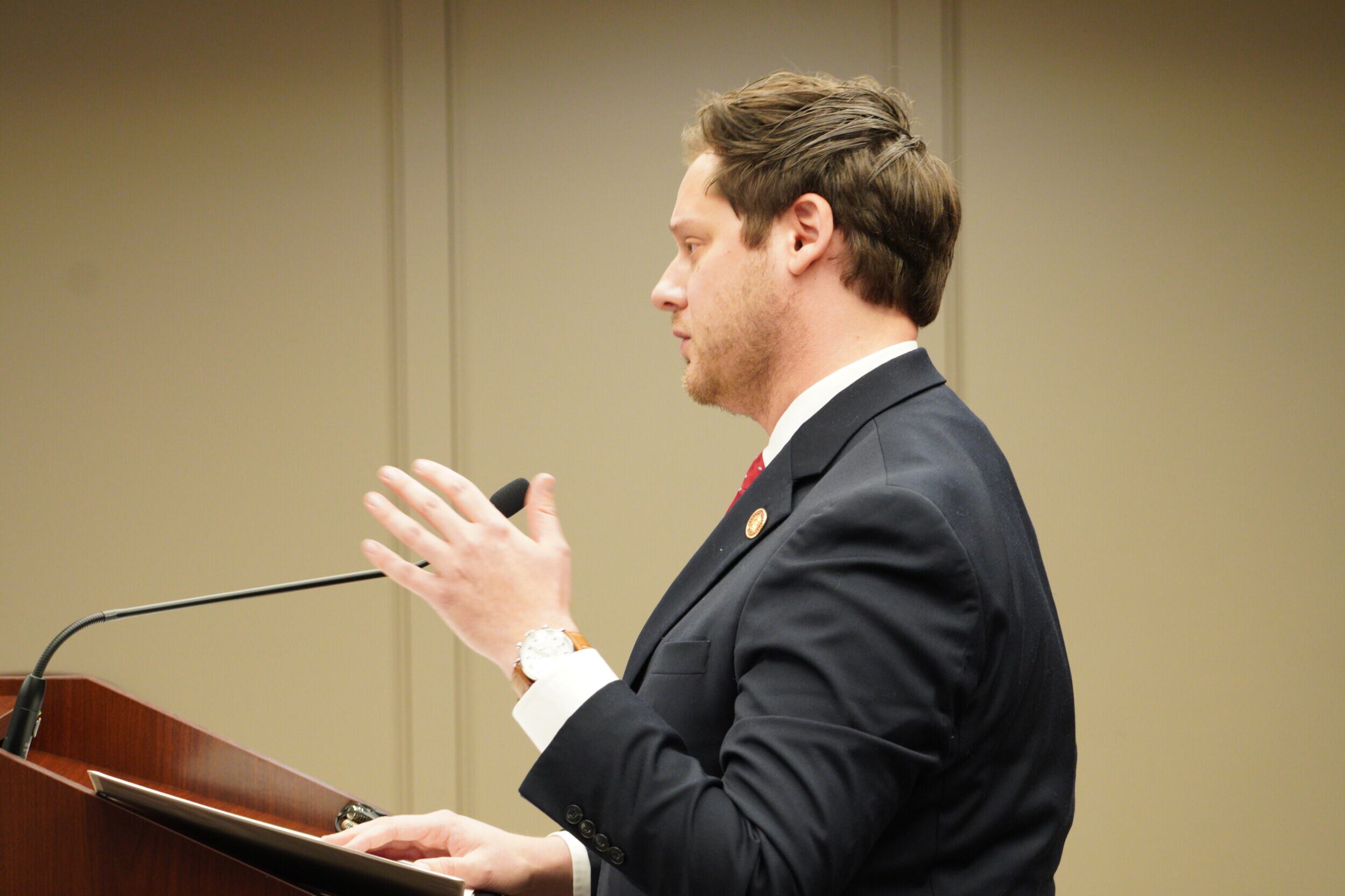MONTGOMERY — State Rep. Phillip Ensler's (D-Montgomery) bill to add criminal penalties for swatting is heading for a vote in the Alabama House of Representatives.
Swatting is a growing crime nationwide. It involves making a prank call to emergency services to bring a large number of armed police officers or a SWAT team to a particular address. Swatting is dangerous to first responders and the victims. In some cases, it has led to the deaths of innocent victims.
Ensler, the only Jewish member of the House of Representatives, was motivated to file the bill after 200 synagogues nationwide, including his own, were swatted with bomb threats.
U.S. Sen. Tommy Tuberville's (R-Auburn) Auburn home was also swatted last December.
Swatting can be politically, ideologically or racially motivated. However, many instances have shown no motive whatsoever, making it difficult for responders to separate real threats from fake ones.
House Bill 78 (HB78) bill would codify the crime of swatting, which is defined as if a person "knowingly reports, or causes to be reported, false or misleading information regarding a crime or emergency to a law enforcement agency or emergency service provider under circumstances where the false or misleading information is likely to cause a response from a law enforcement agency or an emergency service provider."
The bill passed the House Judiciary Committee on Wednesday, receiving unanimous support with one amendment to clean up technical language.
"My synagogue has been targeted by it multiple times," Ensler told the committee. "This is when someone either makes a threat or they call in a threat and says that there's either a bomb or there's a mass shooting. I know this has happened throughout the state at hospitals [and] schools, most recently at the Walmart in Pell City. And what it leads to is not just one or two officers showing up, but a whole team coming, often a swat team if not a K-9 team. It creates a lot of havoc, and it's a tremendous strain on those resources."
"The hope with this bill is to deter people in the first place from doing it. But knowing that sometimes people will still carry it out, it will impose penalties then if they do carry out that kind of incident."
The penalties in the bill depend on the fake crime that is reported. If a person calls in a false report on a misdemeanor crime or emergency, that person would be guilty of a Class A misdemeanor. The punishment would be equivalent to the Class A, B or C felony reported, depending on the false report, only if the emergency response causes physical injury to any person.
The bill will now go to the floor of the House for deliberation and is listed on the House's regular order calendar.
To connect with the author of this story or to comment, email craig.monger@1819news.com.
Don't miss out! Subscribe to our newsletter and get our top stories every weekday morning.










